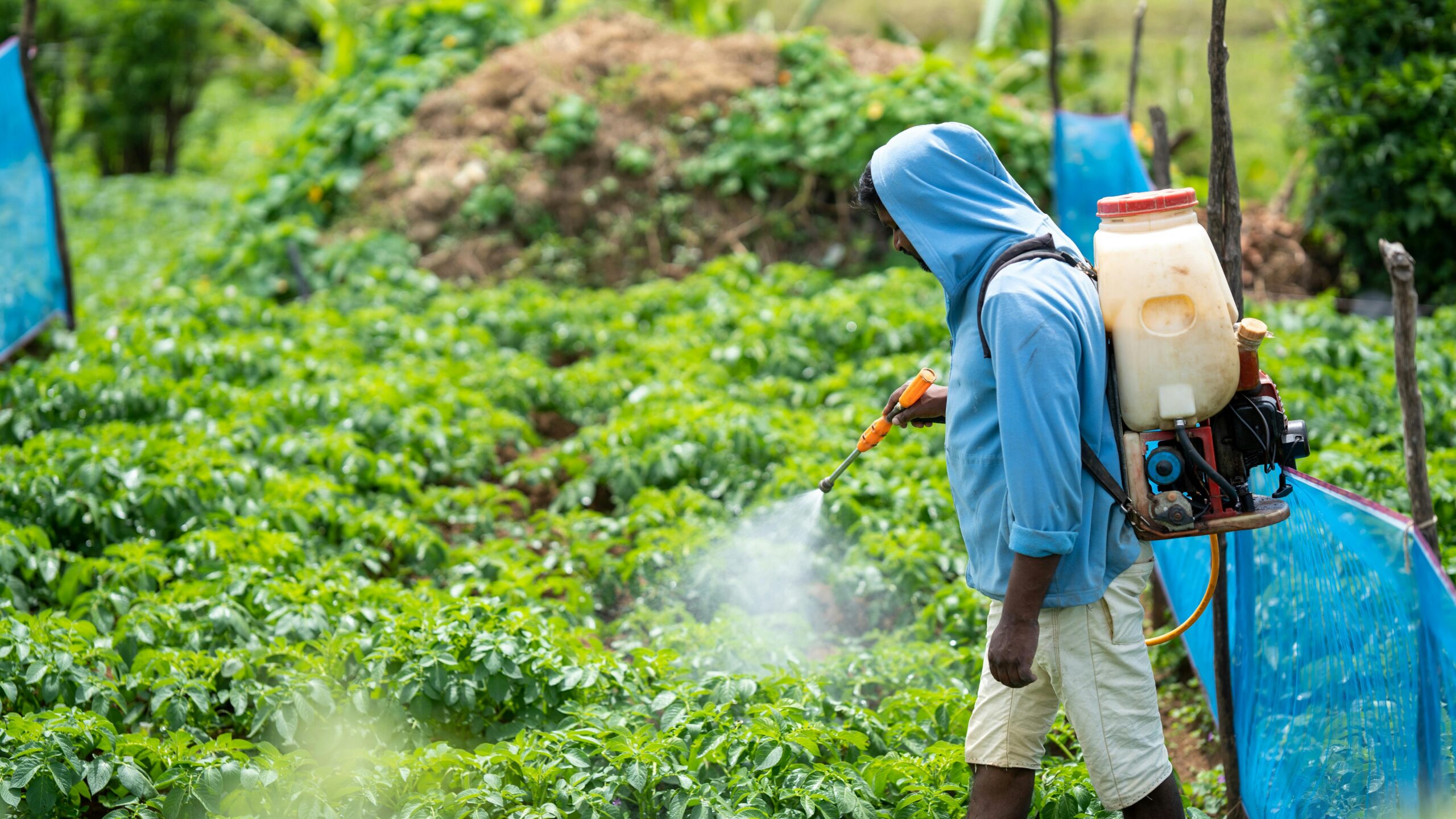Welcome to our informative blog post that aims to demystify the world of agrochemicals and shed light on their crucial role in modern farming practices. In this article, we will explore what agrochemicals are, how they are used, and their potential benefits and drawbacks. By gaining a deeper understanding of these essential agricultural tools, you’ll be better equipped to make informed decisions about their use and impact on our food production systems. So, let’s dive in and uncover the facts behind agrochemicals!
The Basics: What are Agrochemicals?
Agrochemicals, also known as agricultural chemicals, are substances used in farming practices to enhance crop production, protect plants from pests and diseases, and improve overall agricultural efficiency. These chemicals play a pivotal role in modern agriculture, enabling farmers to meet the increasing demands of a growing population.
Agrochemicals encompass a wide range of substances, including fertilizers, pesticides, herbicides, and insecticides. Each type of agrochemical serves a specific purpose in agricultural practices and is designed to address different challenges faced by farmers.
Fertilizers
Fertilizers are agrochemicals that provide essential nutrients to plants, improving their growth and productivity. They typically contain a combination of nitrogen, phosphorus, and potassium, along with other trace elements that plants need for optimal development. Fertilizers can be either organic, derived from natural sources like animal manure or compost, or synthetic, produced through chemical processes.
Pesticides
Pesticides are agrochemicals used to control or eliminate pests that can cause significant damage to crops. They include insecticides, herbicides, and fungicides. Insecticides target insects that feed on crops, herbicides control unwanted weeds, and fungicides combat fungal diseases. These chemicals help protect plants from potential threats, ensuring higher yields and better crop quality.
It’s important to note that while agrochemicals offer numerous benefits, their usage must be carefully regulated to minimize potential negative impacts on the environment, human health, and biodiversity. Striking a balance between effective pest control and sustainable agricultural practices is crucial for long-term agricultural sustainability.
The Role of Agrochemicals in Modern Farming
Agrochemicals have revolutionized modern farming practices, playing a vital role in increasing agricultural productivity and ensuring food security. Here are some key ways in which agrochemicals contribute to modern farming:
Increased Crop Yields
By providing plants with essential nutrients and protecting them from pests and diseases, agrochemicals help maximize crop yields. Fertilizers enrich the soil with nutrients, allowing plants to grow healthier and produce more abundant harvests. Pesticides help farmers combat pests and diseases that can significantly reduce crop yields, ensuring that a greater proportion of crops reach maturity and are suitable for consumption.
Improved Crop Quality
Agrochemicals not only enhance crop yields but also improve the quality of harvested produce. Fertilizers aid in the development of larger, more nutritious fruits and vegetables, enhancing their taste, appearance, and nutritional content. Pesticides help maintain the health and integrity of crops by preventing damage caused by pests and diseases, ensuring that the harvested produce meets quality standards.
Efficient Resource Utilization
Agrochemicals play a crucial role in optimizing resource utilization in agriculture. Fertilizers help plants absorb nutrients more efficiently, minimizing nutrient wastage and reducing the need for excessive fertilizer application. Pesticides specifically target pests and weeds, minimizing the use of resources that would otherwise be wasted on non-target organisms. This efficient use of resources contributes to sustainable farming practices and reduces the overall environmental impact of agriculture.
Pest Resistance Management
Agrochemicals are essential tools in managing pest resistance in crops. By using a combination of different pesticides with varying modes of action, farmers can prevent pests from developing resistance to specific chemicals. This practice, known as integrated pest management, helps maintain the effectiveness of pesticides and ensures long-term pest control efficacy.
While agrochemicals have undoubtedly brought numerous benefits to modern farming, it is crucial to use them responsibly and judiciously. Proper application techniques, adherence to recommended doses, and regular monitoring can help minimize potential negative impacts on the environment and human health, ensuring sustainable and responsible agricultural practices.
Challenges and Controversies Surrounding Agrochemicals
While agrochemicals have undeniably transformed modern farming, they also face certain challenges and controversies that warrant careful consideration. Here are some key issues associated with agrochemical use:
Environmental Impact
The use of agrochemicals can have unintended consequences for the environment. Pesticides, if not properly managed, can contaminate water bodies, harm non-target organisms, and disrupt ecosystems. Fertilizer runoff can contribute to water pollution, leading to issues such as algal blooms and oxygen depletion in aquatic habitats. It is essential to implement best management practices to minimize these environmental impacts.
Health Concerns
There is ongoing debate and research regarding the potential health effects of agrochemical exposure. Prolonged or excessive exposure to certain pesticides has been associated with adverse health effects in humans, including respiratory issues, neurological disorders, and potential links to certain cancers. It is crucial for farmers and individuals working with agrochemicals to follow safety guidelines and use protective measures to minimize exposure risks.
Sustainability and Alternatives
As we strive for more sustainable agricultural practices, there is growing interest in exploring alternatives to agrochemicals. Integrated pest management (IPM) techniques, biological control methods, and organic farming practices are gaining traction as viable alternatives to reduce reliance on synthetic agrochemicals. These approaches aim to minimize environmental impact while maintaining effective pest and disease control.
Regulatory Framework
The regulation of agrochemicals varies across countries and regions, leading to discrepancies in safety standards and approval processes. Harmonizing regulations and ensuring robust testing and evaluation procedures is crucial for safeguarding human health, biodiversity, and the environment.
By addressing these challenges and controversies, we can work towards a more sustainable and responsible use of agrochemicals in agriculture. Striking a balance between the benefits they offer and the potential risks they pose is essential for the long-term viability of our food production systems.
The Future of Agrochemicals: Innovations and Sustainability
The future of agrochemicals lies in innovation and sustainability, as farmers and researchers strive to address the challenges associated with their use. Here are some key developments shaping the future of agrochemicals:
Precision Agriculture
Precision agriculture utilizes advanced technologies, such as GPS, remote sensing, and data analytics, to optimize the application of agrochemicals. By precisely targeting areas that require treatment, farmers can minimize chemical usage, reduce environmental impact, and maximize resource efficiency.
Biopesticides and Biostimulants
Biopesticides derived from natural sources, such as beneficial microorganisms or plant extracts, are gaining popularity as safer alternatives to conventional pesticides. These products offer targeted pest control while minimizing harm to non-target organisms and reducing chemical residues. Biostimulants, on the other hand, enhance plant growth and resilience without direct pest control properties.
Smart Formulations
Advancements in formulation technologies are leading to the development of smarter agrochemical products. Encapsulation techniques and controlled-release formulations allow for targeted delivery of active ingredients, reducing the frequency of application and minimizing environmental exposure.
Sustainable Practices
The future of agrochemicals lies in promoting sustainable farming practices. Integrated pest management (IPM) approaches, organic farming methods, and regenerative agriculture techniques aim to reduce reliance on synthetic agrochemicals while maintaining productivity. These practices focus on soil health, biodiversity conservation, and natural pest control mechanisms.
Research and Regulation
Ongoing research and robust regulatory frameworks are crucial for ensuring the safety and efficacy of agrochemicals. Continued investment in research and development helps improve the understanding of agrochemicals’ impact on the environment, human health, and biodiversity. Strengthening regulatory measures ensures that agrochemicals meet stringent safety standards before entering the market.
The future of agrochemicals lies in embracing sustainable practices, adopting innovative technologies, and ensuring responsible use. By combining scientific advancements with environmental stewardship, we can pave the way for a more sustainable and efficient agricultural industry.
Conclusion: Balancing Benefits and Responsibilities
Agrochemicals have undoubtedly played a crucial role in modern farming, enabling increased crop yields, improved quality, and efficient resource utilization. However, their use also poses challenges and controversies that must be addressed for a sustainable agricultural future.
As we navigate the complexities of agrochemicals, it is essential to strike a balance between the benefits they offer and the responsibilities we have towards the environment, human health, and biodiversity. Responsible agrochemical use involves adhering to safety guidelines, implementing best management practices, and exploring sustainable alternatives.
By embracing innovation and adopting sustainable farming practices, we can minimize the environmental impact of agrochemicals, promote biodiversity conservation, and ensure food security for future generations. It is through ongoing research, robust regulation, and collective efforts that we can achieve a harmonious coexistence between agrochemicals and a sustainable agricultural ecosystem.
Stay informed, remain vigilant, and continue to explore ways to enhance our agricultural practices while safeguarding the health of our planet and its inhabitants. Together, we can navigate the complexities of agrochemicals and build a more sustainable and resilient agricultural industry.
In conclusion, agrochemicals have revolutionized modern farming practices, enhancing crop yields, improving crop quality, and promoting efficient resource utilization. However, their use comes with challenges and controversies that require careful consideration. It is crucial to adopt responsible and sustainable practices, such as precision agriculture, biopesticides, and smart formulations, to minimize environmental impact and ensure long-term agricultural sustainability.
By balancing the benefits of agrochemicals with our responsibilities towards the environment, human health, and biodiversity, we can pave the way for a more sustainable future. Ongoing research, robust regulation, and the exploration of alternative methods will contribute to the continued improvement of agrochemical practices. Let us strive for a harmonious coexistence between agrochemicals and a resilient agricultural ecosystem, ensuring food security while safeguarding our planet for generations to come.

